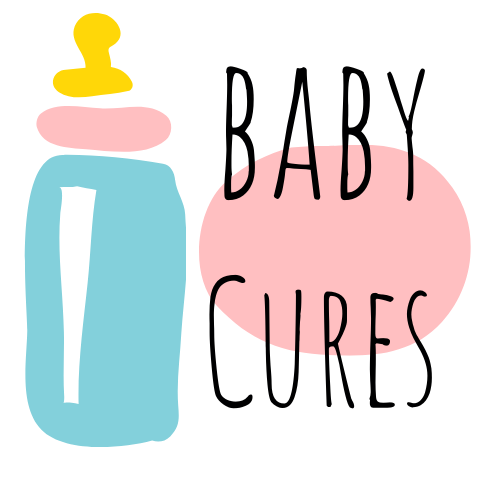Babies are particularly vulnerable to a number of dental problems, which can significantly impact their oral health. Common issues that may arise include early tooth decay, teething pain, and Thrush. It is important for parents to be aware of these conditions in order to take preventive measures. This article will discuss the most common dental problems seen in infants, as well as strategies for preventing them from occurring.
Tooth Decay
Tooth decay is a common dental problem in babies and toddlers. In most cases, it occurs when the amount of sugar from food or drinks are left on teeth for a long period of time which leads to bacteria forming acid that can attack tooth enamel. Tooth decay can cause pain and discomfort for babies as well as affect their daily routines such as eating and sleeping. It may also lead to cavities, infection, and even permanent damage to the baby’s teeth if not treated properly.
Preventing tooth decay in infants is essential for maintaining healthy teeth. Parents should start brushing their child’s teeth with a soft-bristled toothbrush after each meal and at bedtime using only water or an age appropriate fluoride toothpaste. Avoid sugary foods like juice and candy that stick to the teeth and promote bacterial growth. Regular dental visits are also important; children should begin visiting the dentist around six months old or within 6 months of getting their first tooth. During these visits, parents will receive advice about how to care for their baby’s oral health, including proper diet choices, brushing techniques, and other preventive measures against early childhood caries (ECC). Lastly, fluoridated drinking water helps prevent cavities by providing additional protection against acids produced by bacteria in plaque on your teeth.
Teething Pain
Teething pain is another common dental problem experienced by babies. It generally begins when the baby’s first tooth erupts, usually around 5-7 months of age, and may last until all 20 primary teeth have erupted. Symptoms can include irritability, drooling, difficulty sleeping, loss of appetite, swollen gums and gnawing on objects to relieve discomfort. Parents should not be alarmed if their child experiences teething pain as it is a normal part of development.
In order to prevent or reduce discomfort associated with teething there are several techniques that parents can utilize. One such technique is allowing the infant to chew on something cold like chilled carrots or banana slices which help numb the area surrounding the emerging tooth. Additionally, providing items specifically designed for teething relief such as rubber rings filled with water or frozen washcloths will help provide comfort without posing a choking hazard. For more severe cases ibuprofen or acetaminophen may be prescribed by a pediatrician in order to alleviate symptoms but this should only be done under medical supervision.
Parents also need to practice good oral hygiene during this period by brushing their baby’s gums gently twice daily using a soft cloth until they reach 12 months old; at that point parents can start introducing fluoride free toothpaste and teaching them how to brush properly themselves. Regular visits to the dentist starting from birth are important for early detection of any potential problems related to teething pains and for giving proper advice about preventive measures that can ensure healthy teeth and gums throughout childhood into adulthood.
Thrush
Thrush is a common oral condition in babies caused by the fungus Candida albicans. It presents as white patches on the tongue, gums and inner cheeks of the baby’s mouth that cannot be wiped away. The patches may appear bumpy or have irregular outlines. Thrush can cause irritability due to discomfort when feeding, which is why it is important for parents to recognize its symptoms early on and take steps to prevent it.
The most effective way to reduce the risk of thrush is good hygiene measures such as frequent hand washing with soap and warm water before handling baby’s toys, pacifiers and bottles. Parents should also sterilize these items regularly using boiling water or electric steamers; avoid sharing eating utensils between family members; clean any residue from nipples after each use; change diapers frequently; allow proper ventilation in baby’s bedroom; keep bedding dry at all times; and provide adequate nutrition for mother during breastfeeding.
Parents should seek medical advice if they suspect their baby has thrush since over-the-counter medications are not recommended for infants under 4 months old. Treatment usually consists of antifungal medicines prescribed according to age: nystatin drops or liquid mixtures are used for newborns while older babies may require clotrimazole gel or ointment applied directly inside the mouth several times a day until the infection clears up.
Gum Disease
The next common dental problem in babies is gum disease. Gum disease, also known as gingivitis, is an infection of the tissues that surround and support the teeth. It is caused by plaque buildup on the surface of the tooth enamel and can lead to severe damage if left untreated. Symptoms include swollen or red gums, bleeding during brushing or flossing, bad breath and receding gums. If left unchecked, gum disease may eventually cause tooth loss.
Prevention is key when it comes to protecting a baby’s oral health from gum disease. Parents should take their children for regular check-ups with a dentist so any problems can be detected early before they become too serious. Additionally, good oral hygiene practices such as daily brushing and flossing are essential for keeping gums healthy; parents should supervise their child’s brushing to ensure proper technique until age seven or eight. Dietary modifications like limiting sugary snacks between meals will also help reduce the risk of developing gum disease in infants or young children.
Finally, avoiding smoking around children is important since exposure to secondhand smoke increases susceptibility to gum diseases due to its effects on the immune system. Taking these preventive measures will go a long way towards ensuring a happy smile throughout childhood and into adulthood.
Injury

Injury is an important dental problem in infants. The most common type of injury is due to falls or other accidents, which can result in chipping, fracturing, and avulsion (complete displacement) of teeth. In some cases, these trauma-related injuries may cause changes such as discoloration of the affected tooth or even root damage. Another type of injury to consider is bruxism – grinding teeth that often occurs during sleep – which affects both baby and adult teeth. Children with bruxism are likely to experience frequent toothaches and increased sensitivity.
To prevent injuries from happening, parents should take proper precautions when their child starts crawling or walking. When playing outside it’s best to keep them away from hard surfaces like concrete and asphalt where accidental falls could occur more easily. Parents should also monitor how much time children spend playing video games since this increases the likelihood of carpal tunnel syndrome caused by too much finger motion on a controller’s buttons. Furthermore, they must pay close attention when providing toys for their toddler; make sure they meet safety standards set by national organizations such as ASTM International (American Society for Testing and Materials). If necessary, use mouth guards while participating in contact sports activities like hockey or martial arts to protect your baby’s teeth from direct impact blows that have potential to cause severe damage.
Finally, regular visits to the dentist will help diagnose any problems at early stages so preventive measures can be taken accordingly before symptoms become worse over time. For example, if bruxism is diagnosed then the dentist can advise using special splints worn at night that provide cushioning between upper and lower jaws thus protecting teeth against wear and tear
Conclusion
It is important that parents are aware of the various dental problems which may arise in babies. Tooth decay, teething pain, thrush, gum disease and injury can all be damaging to a baby’s health if left untreated. Parents should look out for signs of any of these issues arising and act accordingly by seeking medical advice from a qualified professional. In Toowong, there are many experienced and caring dental professionals who specialize in pediatric dentistry. By taking your baby to a dentist in Toowong, you can ensure that they receive the best possible care and treatment for their dental needs. Click here to learn more about the top-rated dentist in Toowong and their services for infants.

